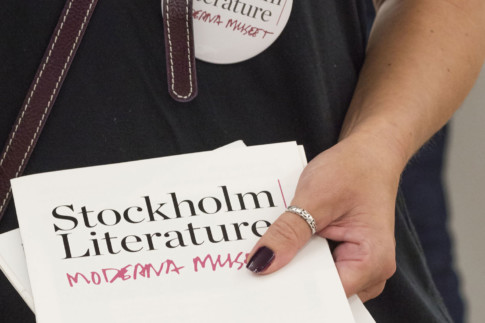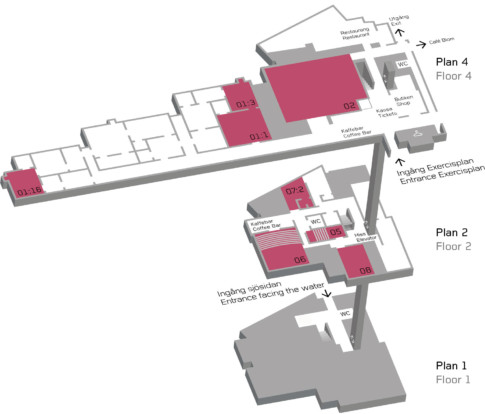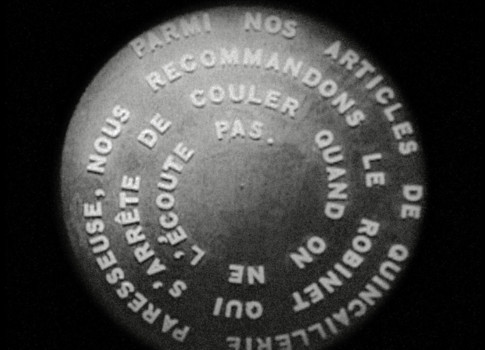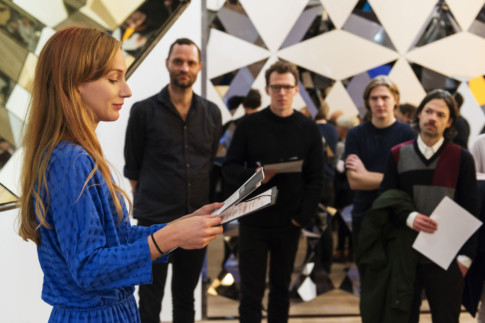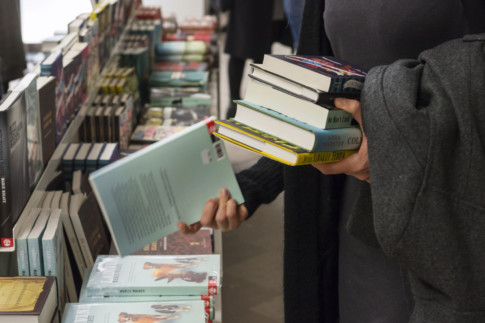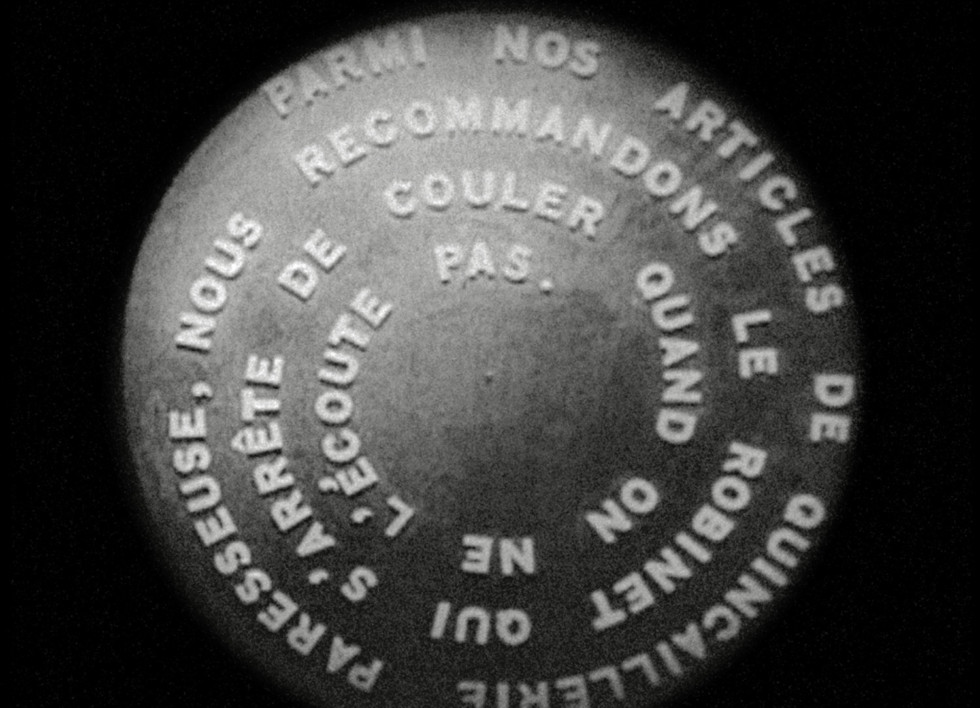
Marcel Duchamp, Anémic Cinéma, 1926 © Succession Marcel Duchamp / Bildupphovsrätt 2017
Writers & artists
Mohsin Hamid
Lise Tremblay & Julia Peirone & Ida Linde
Julian Barnes & Daniel Harding & Ann-Sofi Noring
Johannes Anyuru & Ida Linde
Hito Steyerl & Daniel Birnbaum
Hakan Günday & Cecilia Uddén
Johanna Adorján & Kjell Westö & Kristoffer Leandoer
Petina Gappah & Jason Diakité
Auður Ava Ólafsdóttir & Daniel Sjölin
Sergej Lebedev & Agneta Pleijel
Sergej Lebedev & Magnus Bärtås
Konsert med KammarensembleN
Leif Elggren & Carl Michael von Hausswolff
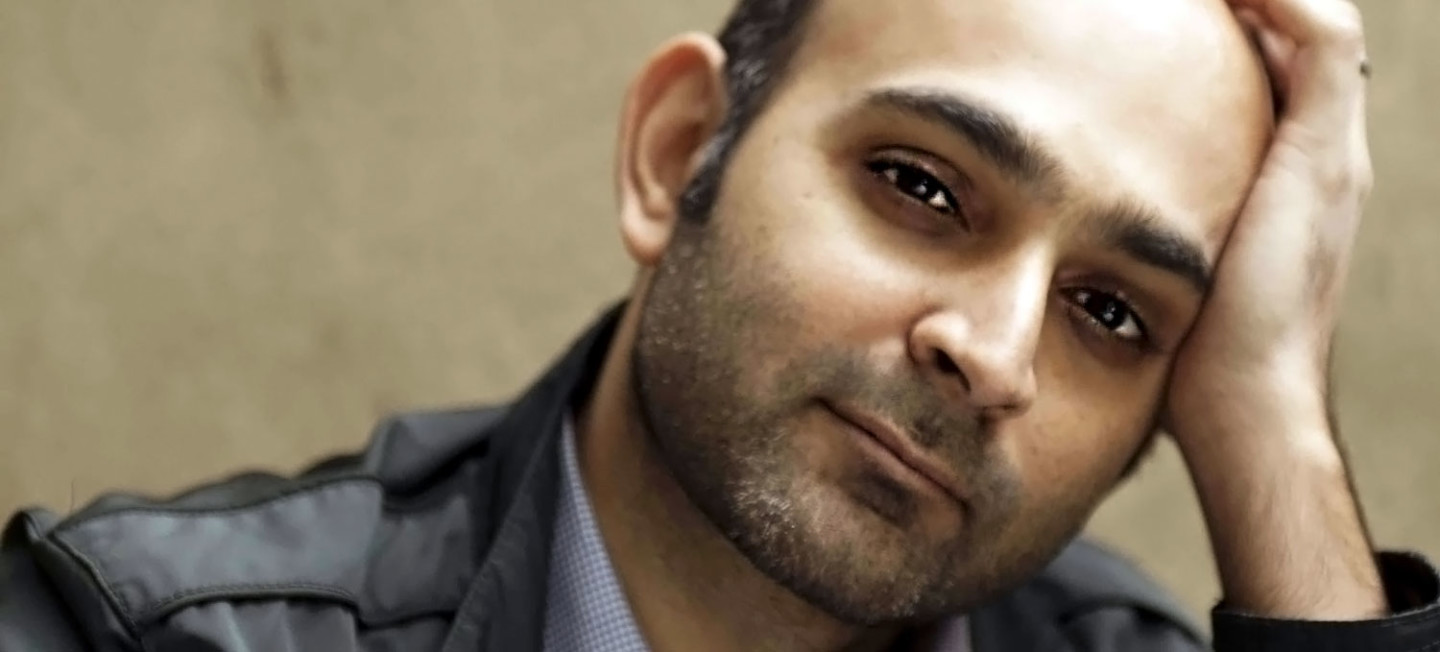
Mohsin Hamid – Key Note Speech
When West Does Not Meets East
Islamist terror, climate disasters and the widening gap between rich and poor. The world around us appears full of crises and threats. Does literature have a responsibility here, and how can it help us interpret the complexity of current events? Moderator: Yukiko Duke.
Mohsin Hamid. Born in 1971 in Pakistan, Mohsin Hamid grew up partly in the USA. After working as a management consultant in New York, Hamid moved back to Pakistan, where he lives today.
He made his literary debut with the experimental novel Moth Smoke (2000), and gained a wider readership with The Reluctant Fundamentalist (2007), which portrays a Pakistani man in the USA who returns to Pakistan after the terror attacks on 11 September, 2001, and becomes what could be described as a fundamentalist. It is here, where East meets West, that many of Mohsin Hamid’s powerful narratives are set. His latest novel, Exit West, is an exceedingly contemporary story of migration with strands of magic realism, about a young, enamoured couple. They are living in a country on the brink of collapse and hear about magic doors out. Exit West was translated into Swedish by Molle Kanmert Sjölander.
In association with Natur & Kultur
The Auditorium SAT at 11.30–12.15 (English)
Readings SAT at 14.00–14.20 (English)
Book signing SAT at 12.30
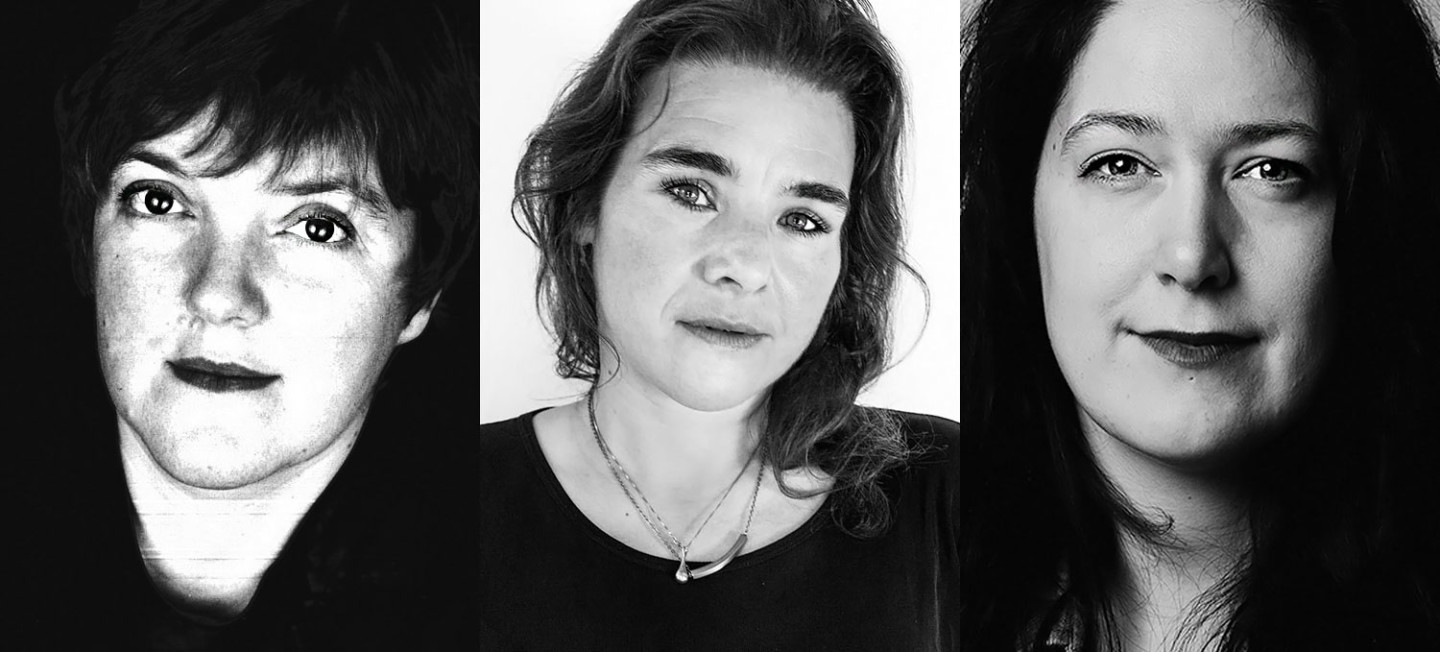
Lise Tremblay & Julia Peirone & Ida Linde
How Close Can You Go?
Lise Tremblay and Julia Peirone portray people who are especially vulnerable, all the while preserving the integrity of their characters by finding the right distance. Both are also engaged in fiction in various ways. What potential does this provide in an era obsessed with reality? Moderator: Ida Linde.
Lise Tremblay. A French-Canadian author (born 1957) from Québec, Tremblay was introduced to Swedish readers in 2015 with The Hunting Ground. This collection of terse short stories portrays the harsh existence in rural Canada, a life of hunting, fishing and drinking, tense relations to summer tourists and a longing to get away that is channelled into violent action, silent withering – or packing and leaving. Her novel published in Swedish this year, Chemin Saint-Paul (2015), is about the price of exile, about returning, and about an intergenerational showdown around the sickbed of a parent. Both The Hunting Ground and Chemin Saint-Paul were translated into Swedish by Elin Svahn.
Julia Peirone. An artist who studied at the Department of Photography at Gothenburg University and at Konstfack University College of Arts, Crafts and Design in Stockholm, Peirone (born 1973) is best known for her photographs of teenage girls who display a lot of attitude, while also revealing the vulnerability that lies under the surface of their desire to seem grown up. Some of Julia Peirone’s photographic works are in the Moderna Museet collection and are featured in the exhibition Golden Sunset. The exhibition takes its name from one of Peirone’s pieces from a series where all the works are named after cocktails. Her bibliography includes Waiting for Red Pigtails, Blind smek min kind (2002), and More Than Violet (2012).
Ida Linde. The novelist, translator and playwright Ida Linde (born 1980) made her debut in 2006 with Maskinflickans testamente, a lyrical novel about a young girl who has lost everything but her courage, her anger and her attitude. Her major breakthrough came in 2014 with a dark, hardboiled thriller, Norrut åker man för att dö, about Sara and Benjamin, a young couple who travel through Sweden, leaving death and destruction in their wake. But above all, it is a novel about the region of Västerbotten, and how we are shaped by our genes and social conditioning.
In association with Ramús, AIEQ and the Embassy of Canada.
The Auditorium
SAT at 12.45–13.30 (French/Swedish)
Readings
SAT at 15.30–15.50 Tremblay (French/Swedish)
SAT at 11.30–11.50 Linde (Swedish)
Book signing
SAT at 13.40 Tremblay, Peirone, Linde
SAT at 13.40 + 16.30 Linde
Zone
SAT at 12–12.20 Tremblay (French)
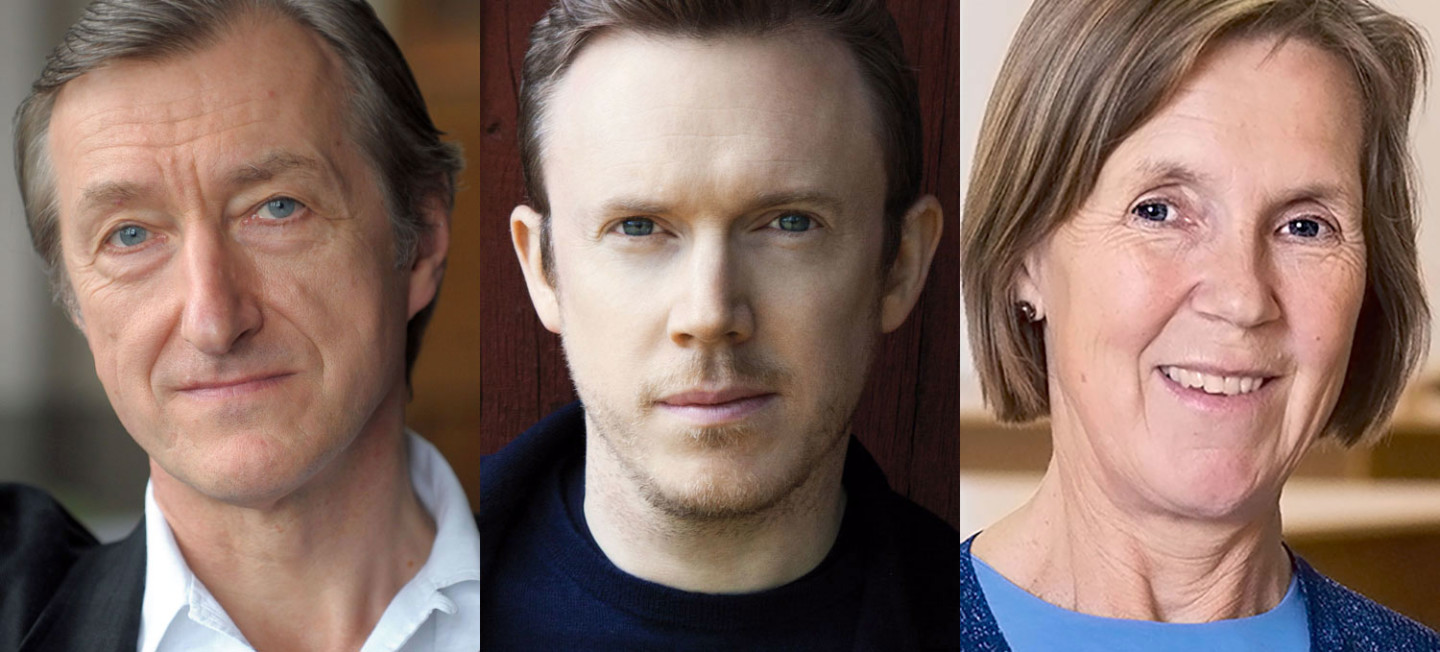
Julian Barnes & Daniel Harding & Ann-Sofi Noring
Programme modification: Daniel Harding has cancelled his participation.
The Limits of Freedom of Speech
How is creativity maintained under authoritarian regimes – and in democracies? How can history be understood in relation to contemporary experiences, and how are music and art interpreted and reinterpreted from one era to another? Moderator: Ann-Sofi Noring.
Julian Barnes. A British novelist and essayist (born 1946) who alternates between writing fact and fiction. His international breakthrough came in 1984, with Flaubert’s Parrot, an erudite and entertaining hybrid between novel, biography, history of literature and whodunit. He was awarded the Man Booker Prize for his psychological detective novel The Sense of an Ending (2011). Barnes’ latest novel to be translated into Swedish, The Noise of Time, is a riveting story about the composer Dmitri Shostakovich’s struggle to survive with his artistic integrity intact in Stalin’s Soviet Union. The Noise of Time was translated into Swedish by Mats Hörmark.
Daniel Harding. One of the most popular conductors of his generation (born 1975), who works with orchestras all over the world. This year, he began the autumn season as chief conductor of the Orchestre de Paris. 2017 is his tenth anniversary as chief conductor of the Swedish Radio Symphony Orchestra. During his time in Stockholm, he has made numerous successful concerts, tours and recordings; in 2014/15, he was in charge of the Interplay programme, a series of events where he invited artists, philosophers and scientists to interact with the symphony orchestra. Harding is also in frequent demand as an opera conductor, especially at La Scala in Milan.
Ann-Sofi Noring. Co-Director, Moderna Museet.
In association with Forum.
The Auditorium SAT at 14.00–14.45 (English)
Book signing SAT at 15.00 Barnes
Readings SUN at 12.30–12.50 Barnes (English) Cancelled!
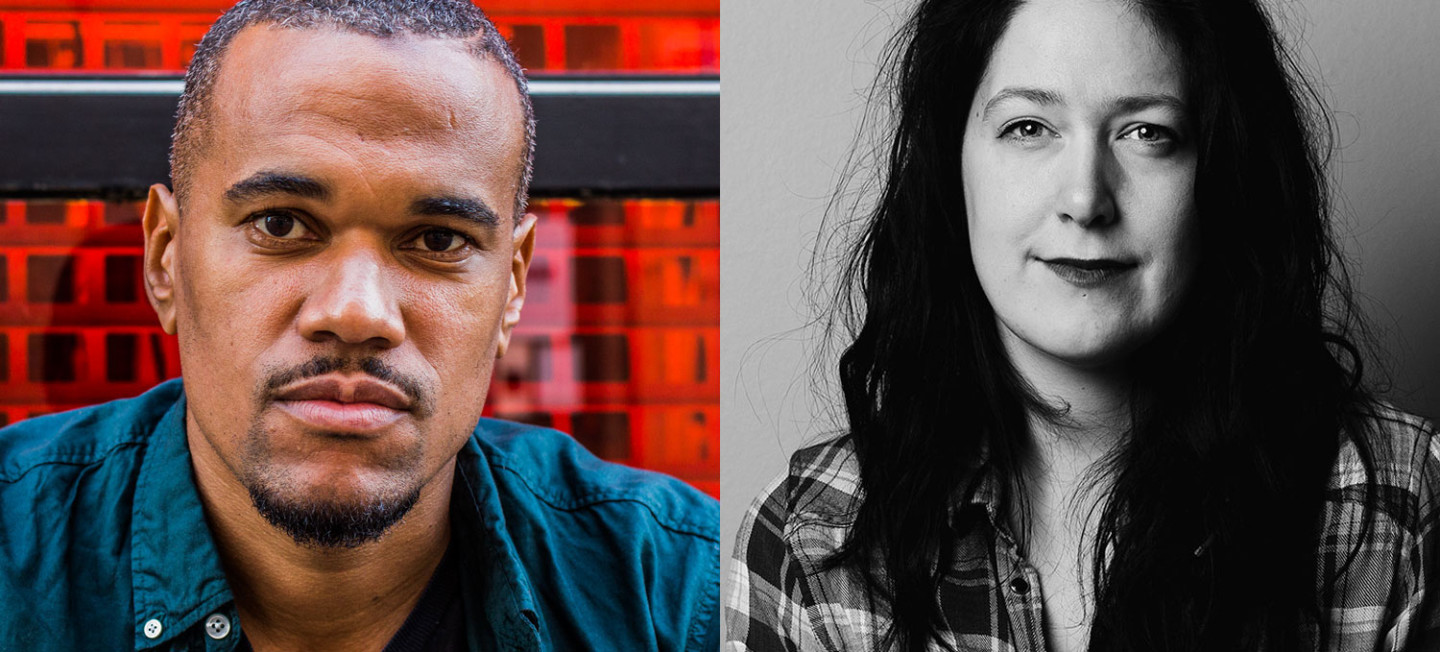
Johannes Anyuru & Ida Linde
How Do the Questions Evolve In the Writing?
How do the topics that feel urgent to the author mutate in the course of writing? How is the subject matter entwined with the world and life’s circumstances? How can fiction describe reality?
Johannes Anyuru. A poet, novelist and playwright (born 1979), Anyuru made his literary debut in 2003 with a poetry collection, Det är bara gudarna som är nya, where a portrayal of life in the concrete jungle of the housing estates resonates against Homer’s Iliad. His Achaeans are the rootless, wayward youths, young warriors with rage burning in their veins. His major international breakthrough came in 2012, with A Storm Blew in from Paradise, which tells the story of his father, a Ugandan aviator. On the road from a village in Uganda to exile in Gothenburg, his father’s dreams are shattered in chilly Sweden, where they don’t seem to understand him.
Ida Linde. Linde, a novelist, translator and playwright, (born 1980) made her debut in 2006 with Maskinflickans testamente, a story in prose poems about a young girl who has lost everything but her courage, her anger and her attitude. Her major breakthrough came in 2014 with a dark, hardboiled thriller, Norrut åker man för att dö, about Sara and Benjamin, a young couple who travel through Sweden, leaving death and destruction in their wake. But above all, it is a novel about the region of Västerbotten, and how we are shaped by our genes and social conditioning.
In association with Norstedts.
The Auditorium
SAT at 15.15–16.15 Anyuru & Linde (Swedish)
SAT at 12.45–13.30 Tremblay & Peirone & Linde (French/Swedish)
Book signing
SAT at 16.30 Anyuru & Linde
SAT at 13.40+16.30 Linde
Readings
SAT at 12.30–12.50 Anyuru (Swedish)
SAT at 11.30–11.50 Linde (Swedish)
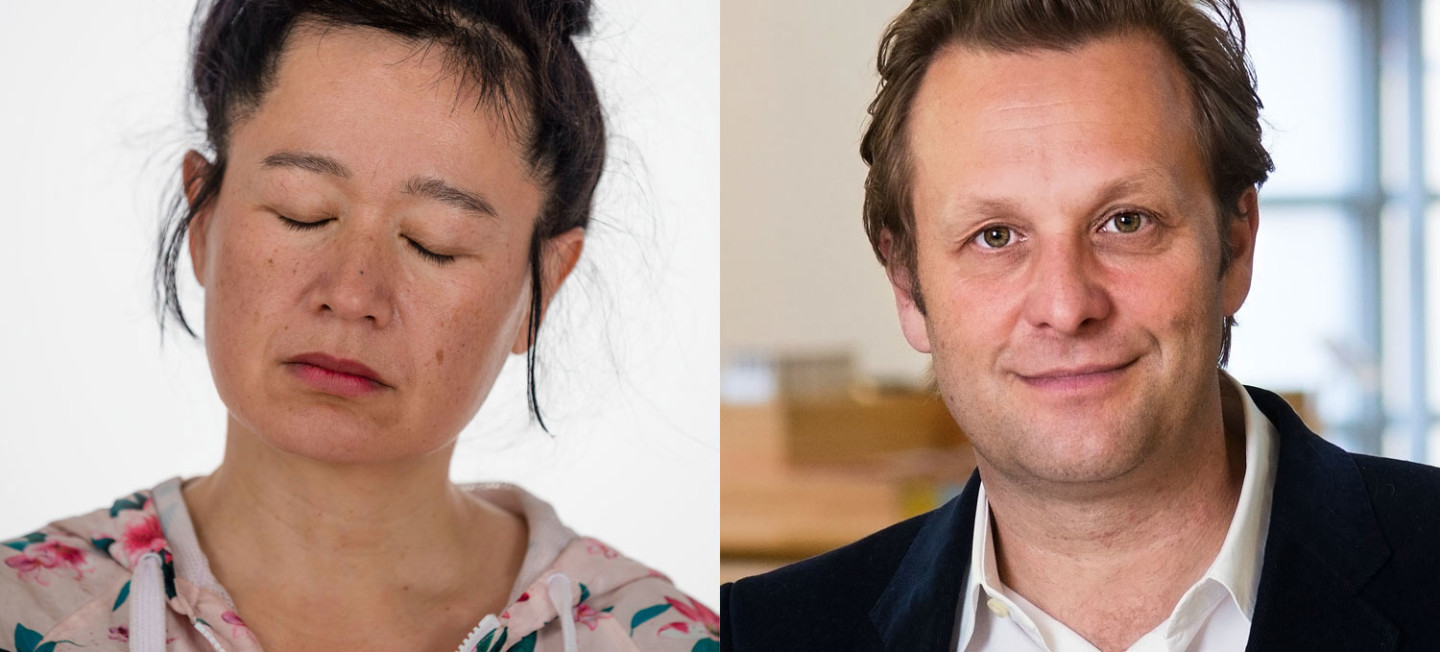
Hito Steyerl & Daniel Birnbaum
The Impact of Technology on Art and Mankind
A philosophically-oriented visual artist, who uses text as one of her media, and the director of Moderna Museet ask themselves how technological innovations influence our notions of what it means to create and be a human being today.
Hito Steyerl. Hito Steyerl is documentary and art film maker who also gives performance lectures. She is also an essayist and writes about subjects such as digital image culture. Born in 1966, Steyerl is featured in the exhibition Manipulate the World – Connecting Öyvind Fahlström with her large spatial installation Factory of the Sun (2015) and the essay Why Games? in the accompanying catalogue. She studied filmmaking in Japan and documentary film directing in Japan and Germany, and defended her doctoral thesis in philosophy at the Academy of Art in Vienna. She is a professor of media art at the Universität der Künste in Berlin since 2010. In 2007, she participated in documenta 12 in Kassel, and was shown at the Venice Biennale in 2013 and 2015.
Daniel Birnbaum. Director of Moderna Museet. In 2001–2010, Daniel Birnbaum (born 1963) was the rector of, and professor at, Städelschule Staatliche Hochschule in Frankfurt, Germany. He has a PhD in philosophy and has been internationally active as a critic, writing for publications such as Artforum. He was previously an art critic for Dagens Nyheter, director of the Swedish Arts Grants Committee’s International Program in Sweden. He has curated numerous major international exhibitions and biennials, and was the artistic director of the Venice Biennial in 2009.
In the exhibition (the foyer) Manipulate the World – Connecting Öyvind Fahlström
SAT at 15.00–15.45 (English)
Book signing
SAT at 16.00 Steyerl Cancelled!
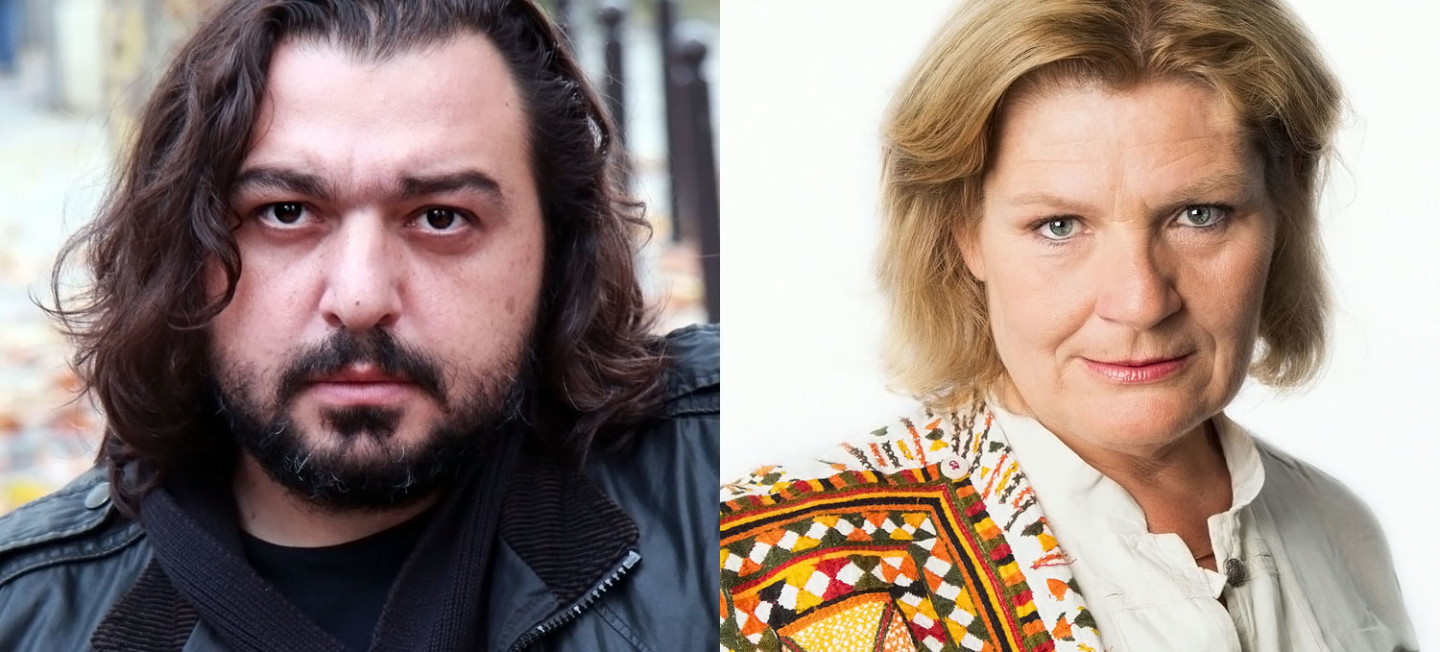
Hakan Günday & Cecilia Uddén
The Price of Our Humanity
What induces people to commit monstrous deeds? When are we prepared to cross the line of the morally defensible? What is the price of our kindness and humanity?
Hakan Günday. A novelist and playwright (born 1976) who has published a number of controversial novels in his native Turkey. His novel More, which was his major international breakthrough, is an account of the refugee crisis as seen through the eyes of a teenager. Since childhood, Gaza has helped his father smuggle desperate people through Turkey to a city near the Aegean Sea. Gradually, the boy’s humanity is worn down, and he performs act of unbelievable cruelty. Günday’s More is a painful and politically charged novel about how people turn into wolves. More has been translated into Swedish by Mats Andersson.
Cecilia Uddén. An award-winning foreign correspondent (born 1960), Cecilia Uddén has worked mainly for Swedish Radio. With an exceptional eye for detail, deep commitment, and expressive language, she has explained complicated political events to the Swedes, skilfully interweaving the minutiae of everyday life in various countries with international politics. HEr reports have introduced Swedish radio listeners to the Jewish butcher in Tehran and the tailor in Gaza, people whose lives are governed by politics far from their local neighbourhood.
In association with Albert Bonniers Förlag.
The Auditorium SUN at 11.30–12.15 Günday & Uddén (English)
Book signing SUN at 12.30 Günday
Readings SUN at 13.30–13.50 (English) Günday
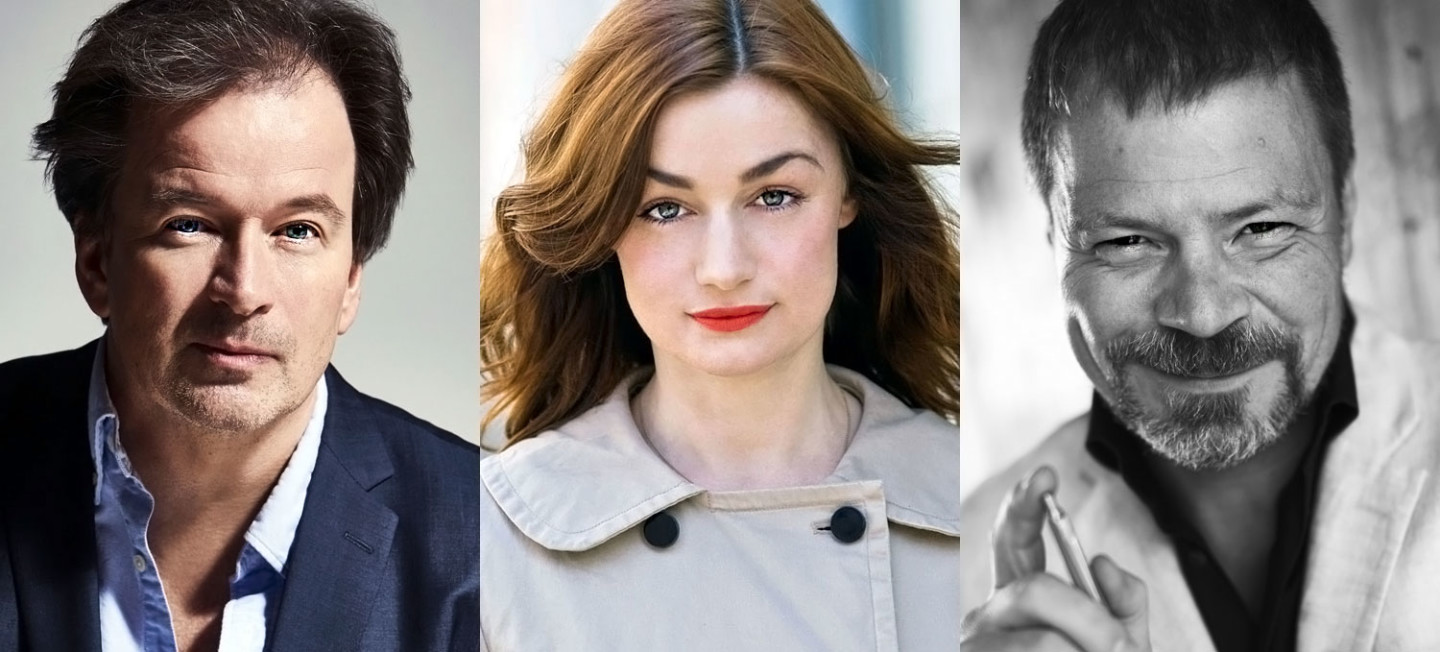
Johanna Adorján & Kjell Westö & Kristoffer Leandoer
The Big and Small World
How is the big world reflected in the small world? Is it only in the innermost fragile weft of family life that historic events and social change become sufficiently distinct to be transformed into literature? Moderator: Kristoffer Leandoer.
Johanna Adorján. A German-language writer living in Berlin, Johanna Adorján was born in 1971 in Stockholm, where her parents, both classical musicians, were living at the time. She was first published in Swedish with a book of short stories, My 500 Best Friends, a scathing portrait of wannabes and has-beens on Berlin’s arts scene. Her first novel, An Exclusive Love, is now published in Swedish: based on her grandparents’ last day alive, Europe’s darkest moments are portrayed through the author’s Hungarian family history. Both My 500 Best Friends and An Exclusive Love were translated into Swedish by Christine Bredenkamp.
Kjell Westö. A Finnish-Swedish author (born 1961), Kjell Westö made his popular breakthrough in 1996 with the novel Drakarna över Helsingfors, a portrayal of the Finnish capital and its development over half a century. Helsinki is the hub of Westö’s writing, along with the characters on its arts scene, which he knows well. Another theme is Finland’s traumatic 20th-century history, of which he gave a close-up account in his award-winning novel The Wednesday Club (2013). His latest novel, published this year, Den svavelgula himlen, is an even darker take on one of his key themes.
Kristoffer Leandoer. A poet, novelist, translator and critic (born 1962) specialising in French literature and fantasy, Kristoffer Leandoer made his literary debut in 1987, and has since published numerous poems and novels, most recently an alternative history of literature, De försvunna böckernas bibliotek.
In association with Norstedts and Albert Bonniers Förlag.
The Auditorium
SUN at 12.45–13.30 Adorján & Westö & Leandoer (English)
Readings
SAT at 12.00–12.20 Leandoer (Swedish)
SAT at 13.00–13.20 Adorján (German/Swedish)
SUN at 14.30–14.50 Westö (Swedish)
Book signing
SUN at 13.40 Adorján & Westö & Leandoer
Zone
SUN at 14.00–14.45 Leandoer (Swedish)
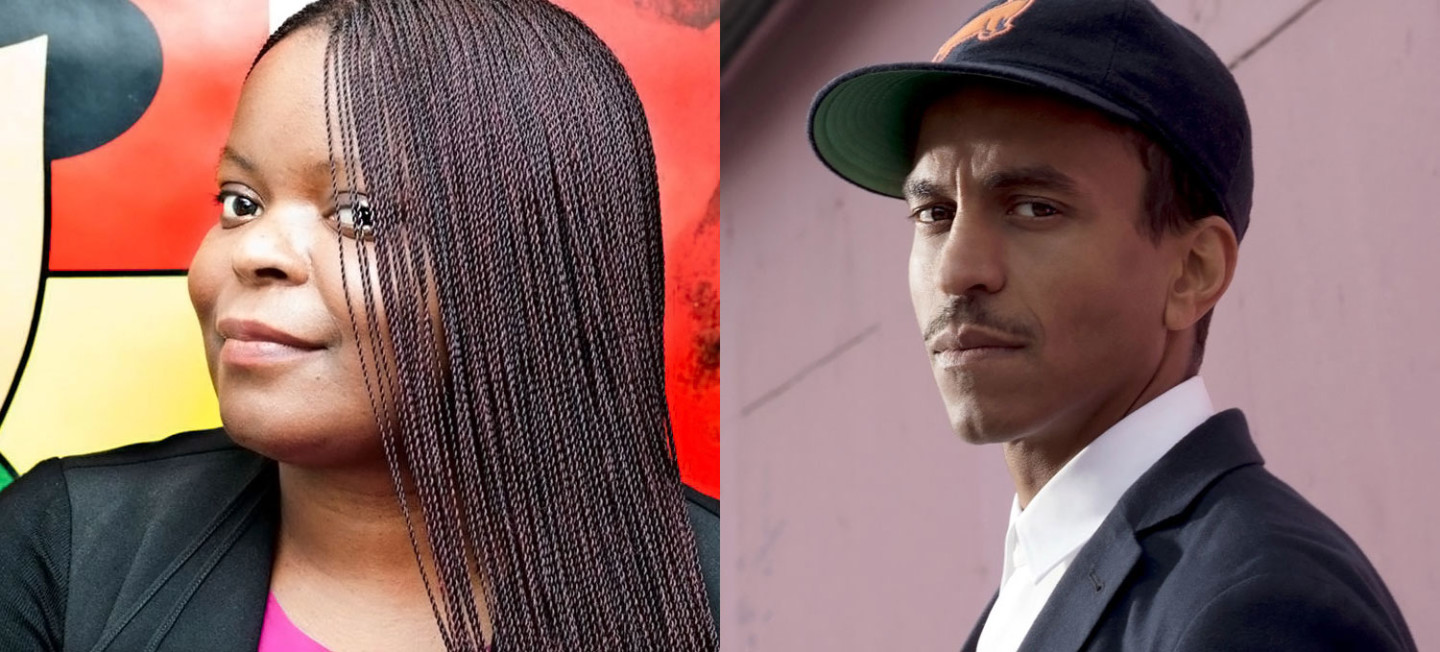
Petina Gappah & Jason Diakité
Who Am I?
How do we become who we are? How are we shaped as individuals by our memories and our history? How deeply are we affected by society’s attitudes to ethnicity, class and gender, and our own self-image? And how can the written word help us in our search for identity?
Petina Gappah. Born in 1971, Zimbabwean author Petina Gappah came into prominence with her award-winning first book, a collection of short stories. An Elegy for Easterly (2009) is a scorchingly dark and lyrical portrait of her native country in simple but powerful prose. In her novel The Book of Memory (2016, in Swedish 2017), Gappah tells the story of the black albino woman Memory who is in prison in Harare. Again, the author relates the turbulent changes that Zimbabwe has undergone in recent decades. And again, she executes this with an undercurrent of humour and love for her country. After many years as a lawyer in Geneva, Petina Gappah currently lives in Berlin. The Book of Memory was translated into Swedish by Helena Hansson.
Jason Diakité. A Swedish-American novelist and multi-award-winning hip hop artist (born 1975), Diakité is better known under his artist name, Timbuktu. His literary debut, En droppe midnatt (2016), is a profoundly personal rendering of the search for identity. When the child Jason is bullied at school for his skin colour, he is ashamed. But music eventually helps him turn his shame into pride. As an adult going back to his roots, he discovers the strong link between his personal history and the history of African Americans in the USA, and also that there is a Swedish black history worth telling.
In association with Albert Bonniers Förlag.
The Auditorium
SUN at 14.00–14.45 Gappah & Diakité (English)
Readings
SAT at 16.00–16.20 Gappah (English)
SUN at 12.00–12.20 Diakité (Swedish)
Book signing
SUN at 15.00 Gappah & Diakité
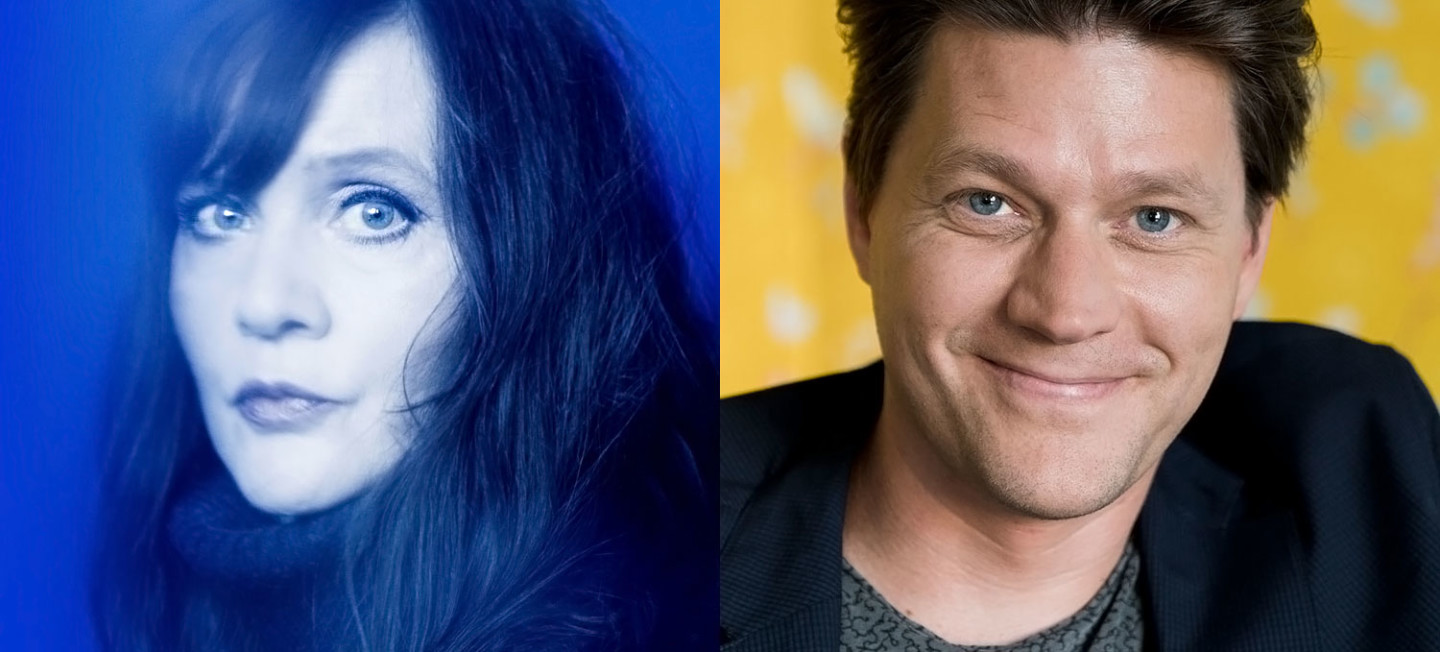
Auður Ava Ólafsdóttir & Daniel Sjölin
The Aching Family Pain
Every family has painful memories and shameful secrets that they try to forget. These wounds are irresistible to writers. Why do families provide such interesting subject matter? And why do we never tire of reading about them?
Auður Ava Ólafsdóttir. Icelandic novelist, poet and playwright (born 1958) Auður Ava Ólafsdóttir is a professor of art history at the University of Iceland. She is acclaimed for her novels, in which she writes with warmth and ironic humour about complicated human relations in contemporary Iceland. Under the guise of intelligent feelgood stories, there is also a bleak, grave undercurrent. This year, two of her novels have been published in Swedish. Both, Undantekningin and Ör, were translated into Swedish by Per Arvid Nordh.
Daniel Sjölin. Born in 1977, Daniel Sjölin made his debut in 2002 with a novel, Oron bror, followed by Personliga pronomen two years later. In 2007, he published Världens sista roman (The World’s Last Novel), which he followed with a long silence. He stopped writing while hosting the book programme Babel on Swedish Television. Six years later, he co-authored a series of adventure stories under the pseudonym Michael Mortimer, and the acclaimed short story Alla vill bara gå hem.
In association with Weyler förlag and the Embassy of Iceland.
The Auditorium SUN at 15.15–16.00 Ólafsdóttir & Sjölin (English)
Readings SAT at 13.30–13.50 Ólafsdóttir (Icelandic)
Book signing SUN at 16.10 Ólafsdóttir
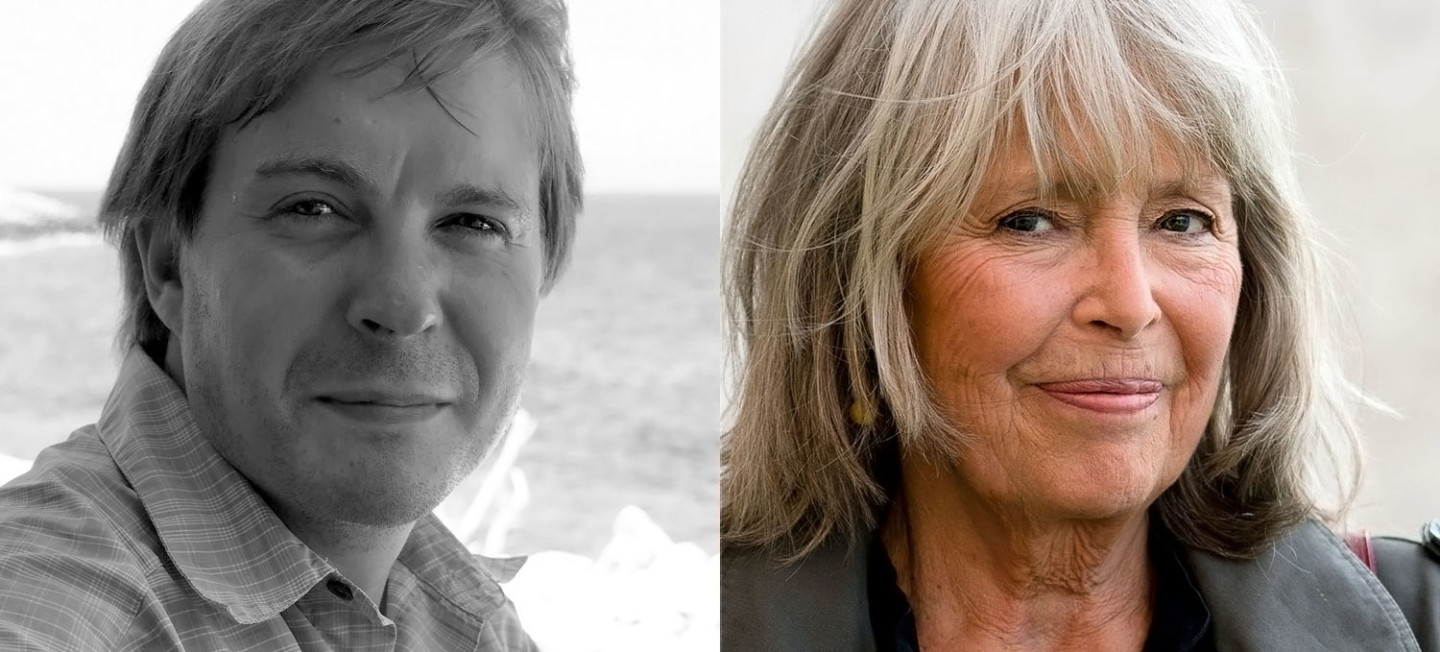
Sergej Lebedev & Agneta Pleijel
When the Empire Falls
What happens on the outskirts of an empire, in the margins where news broadcasters never venture? And what happens after the colonisers and system builders? Is that where real history is written, in the periphery?
Sergei Lebedev. A Russian novelist, poet and essayist from Moscow (born 1981), Lebedev worked for seven years on geological expeditions in northern Russia and Central Asia, an experience that informs his acclaimed debut novel, Oblivion, which has been translated to a dozen languages and was chosen by Wall Street Journal as one of the best books of 2016. Oblivion is set in Siberia, in the ruins of the Soviet detention camps, the Gulag, where ex-convicts and guards try to survive in the aftermath of a fallen empire. Oblivion was translated into Swedish by Nils Håkanson.
Agneta Pleijel. A novelist, playwright and poet (born 1940), whose first novel, the semi-autobiographical Vindspejare, was published in 1987. Several of her novels are based on historic, often famous people from her own family. Pleijel recently published Doften av en man, the critically-acclaimed second volume of her autobiographical novel series. The first part was Spådom. They chronicle the author’s development from child to adult, while delivering a sharp portrait of a society in change.
In association with Natur & Kultur
The Auditorium
SUN at 16.30–17.15 Lebedev & Pleijel (English)
The Cinema
SAT at 13.00–13.30 Lebedev & Håkansson (Russian/Swedish)
SUN at 12.00–12.45 Lebedev & Bärtås (English)
Readings
SAT at 15.00–15.20 Lebedev (Russian/Swedish)
SUN at 11.30–11.50 Pleijel (Swedish)
Book signing
SUN at 17.30 Lebedev & Pleijel
Zone
SAT at 14.00–14.20 Lebdev (Russian)
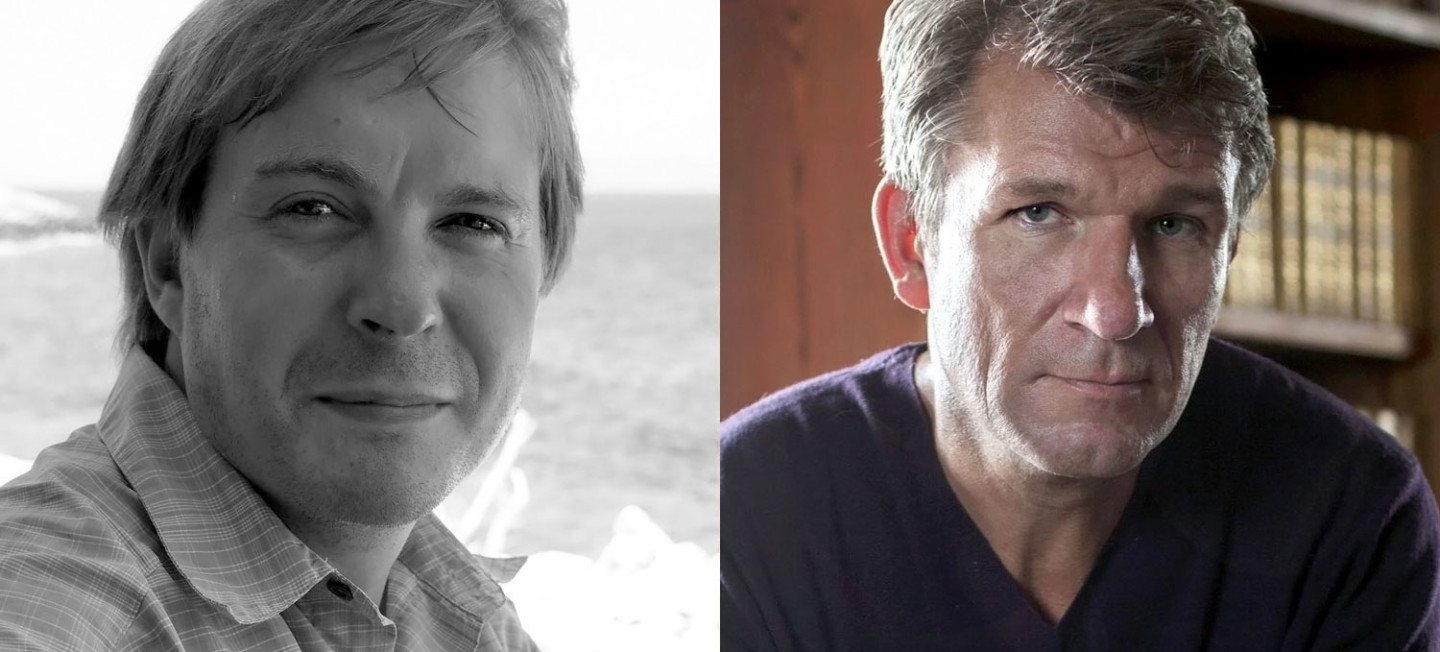
Sergej Lebedev & Magnus Bärtås
Mechanisms of Oppression
Magnus Bärtås explores totalitarian states – in both writing and images. Sergei Lebedev has first-hand experiences of oppression. Two storytellers share their experiences in this field based on different artistic media.
Magnus Bärtås. An artist, author and art professor, Magnus Bärtås (born 1962) has written several books with the librettist Fredrik Ekman, including Alla monster måste dö – gruppresa till Nordkorea, ett reportage (2011). There are connections between this book and the award-winning video essay Madame & Little Boy, 2009. In autumn 2017, he published the biography Bebådaren, about the writer, legendary dandy and European arts celeb Gabriele D’Annunzio. D’Annununzio’s rhetoric and actions paved the way for a new political order – fascism.
Sergei Lebedev. A Russian novelist, poet and essayist (see above Sergej Lebedev & Agneta Pleijel).
Madame & Little Boy, film by Magnus Bärtås
In 1978, the legendary South Korean actress Choi Eun-Hee (Madame Choi) was abducted by North Korean agents in Hong Kong. She was taken to Pyongyang, along with her ex-husband, the film director Shin Sang-Ok. This video essay examines the historical and repetitive aspects of the actress’s life. It challenges conventional documentary practice by experimenting with a “situated narrative”, where the narrator is visible and located in a specific place.
In association with Natur & Kultur.
The Cinema
SUN at 11.30–12.00 Madame & Little Boy, 27 min, 2009, film av Magnus Bärtås (English)
SUN at 12.00–12.45 Lebedev & Bärtås (English)
SUN at 13.00–13.30 Madame & Little Boy, 27 min, 2009, film av Magnus Bärtås (English)
Readings
SAT at 15.00–15.20 Lebedev (Russian/Swedish)
SUN at 14.00–14.20 Bärtås (Swedish)
Book signing
SUN at 13.00 Bärtås & Lebedev
SUN at 17.30 Lebedev
Zone
SAT at 14.00–14.20 Lebedev (Russian)
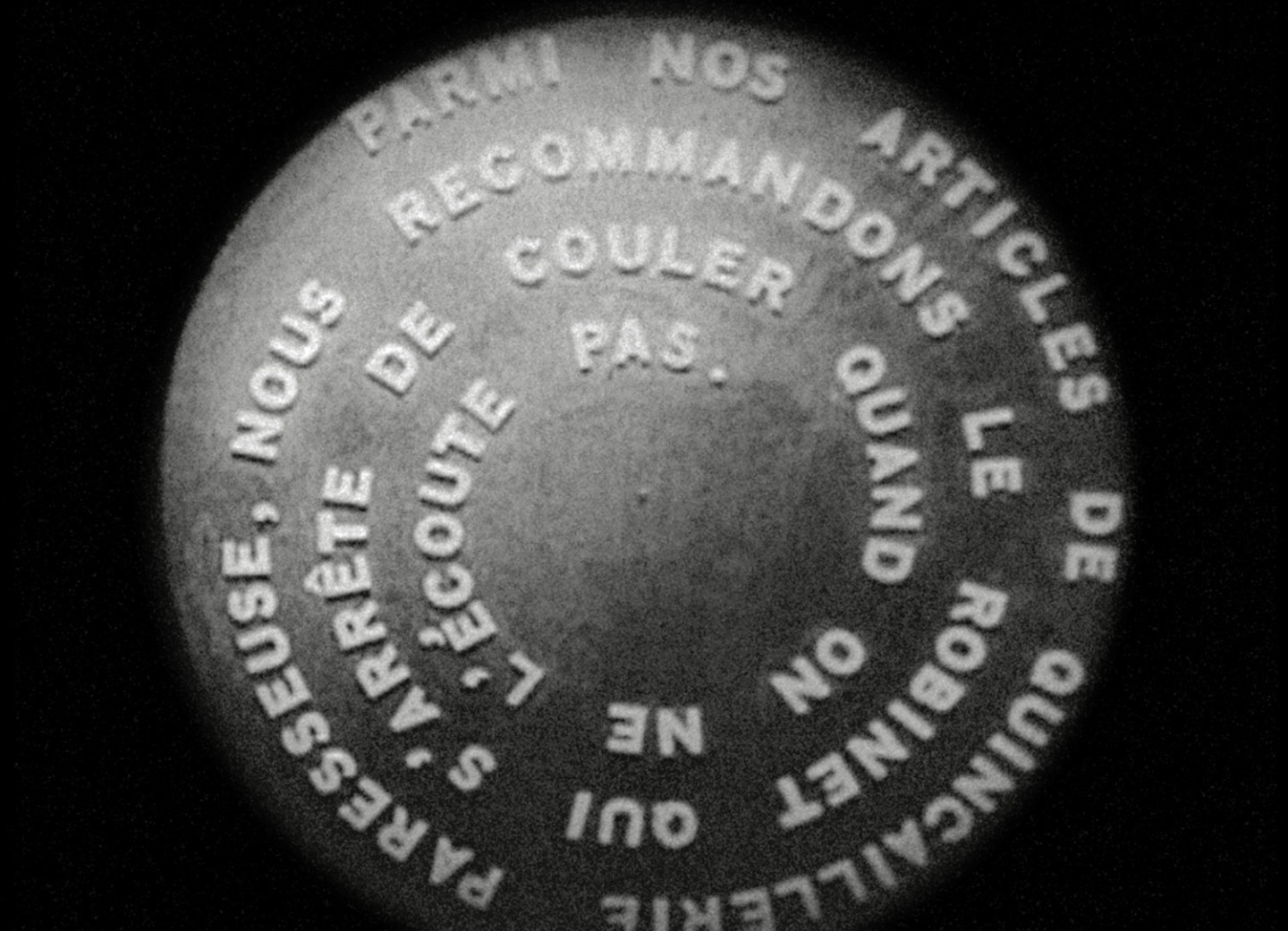
A concert with KammarensembleN
Rotorelief Suite by Ivo Nilsson
Surrounded by Duchamp’s art, KammarensembleN will perform a special version for Stockholm Literature. This music has been presented in various forms since 2001, and originates in the composer Ivo Nilsson’s fascination for the artist Marcel Duchamp’s Rotoreliefs – discs printed with spiral patterns to be “played” on a gramophone, which appear to be three-dimensional when in motion. His encounter with these Rotoreliefs made Ivo Nilsson ask himself: What would they sound like?
This prompted him to compose a piece for each of the discs. A year later, after seeing the film Anémic-Cinéma from 1926, in which Duchamp, together with Man Ray, alternates footage of the Rotoreliefs with spirals of text, Ivo Nilsson expanded his music into a suite for speakers and an ensemble.
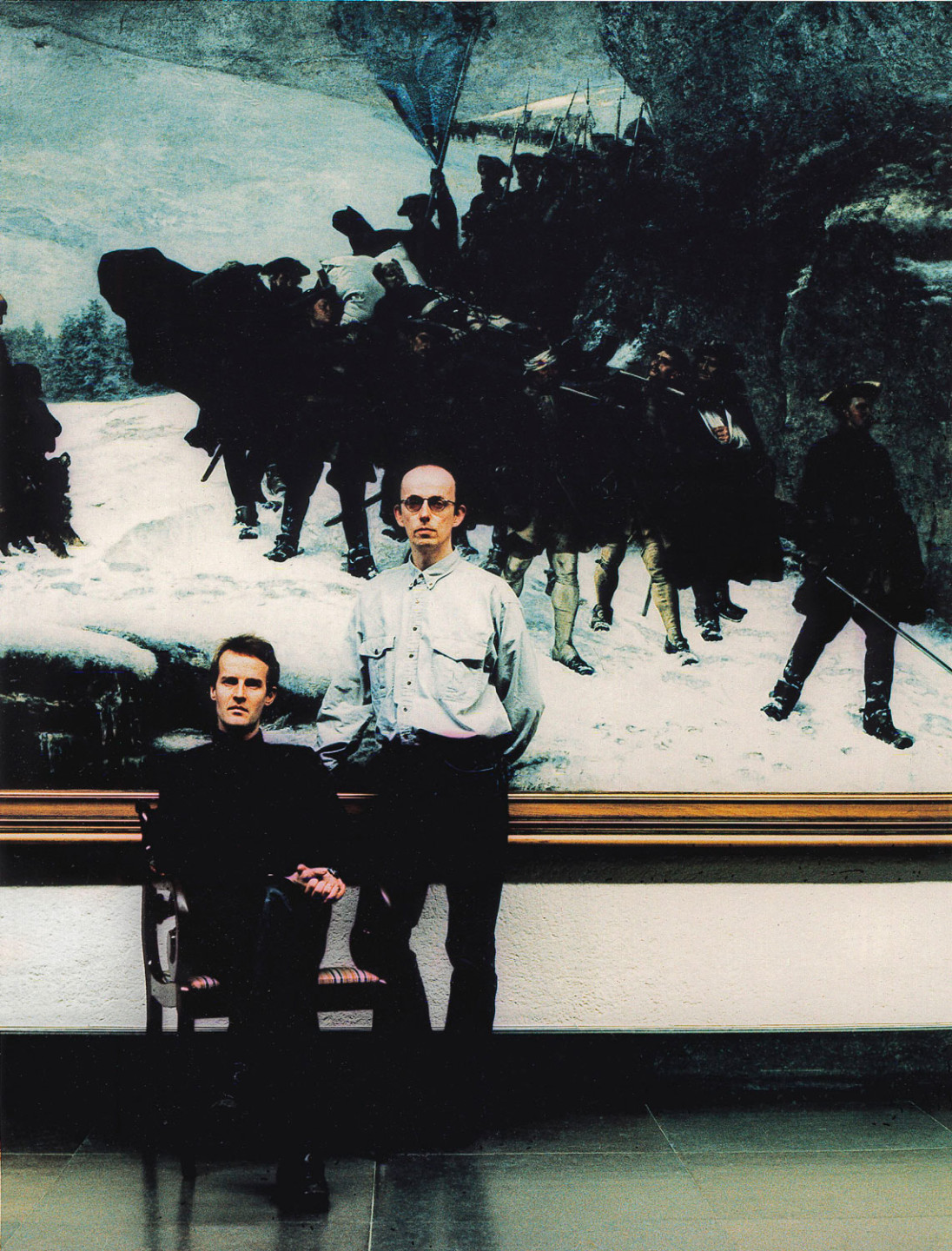
Leif Elggren & Carl Michael von Hausswolff
The Kingdoms of Elgaland–Vargaland Consulate
The Kingdoms of Elgaland–Vargaland, KREV, are celebrating their 25th anniversary. Both artists are kings in their respective realms, but they live and work mainly in Stockholm. In 2017, they are touring the world to celebrate the anniversary, and an exhibition in the Pontus Hultén Study Gallery features the aggregate activities of KREV.
They will do a performance at the opening of Stockholm Literature and operate a temporary KREV consulate at the festival, where passports will be issued. Don’t miss this opportunity to apply for citizenship in a kingdom where artistic activity is always top of the agenda, and where the dead and the living have the same status.
The Auditorium FRI at 19.00
Pontus Hultén Study Gallery SUN at 11.00–18.00
Festival card weekend 300 SEK (reduced price 250 SEK)
Festival card Saturday 200 SEK (reduced price 150 SEK)
Festival card Sunday 200 SEK (reduced price 150 SEK)
Supplementary tickets for the Auditorium 35 SEK
Inauguration 100 SEK
Reduced price for students, seniors and members of the Friends of Moderna Museet.
Tickets required for all events in the Auditorium and the inauguration on Friday. Ticket is only valid together with the Festival Card.
Festival card required for the poetry walks.
Admission free to events in Zone, the Cinema and on the Reading Stage.
Tickets available here on the website. From 17 October 2017 you can also buy tickets at the museum.
Buy Tickets
Festival programme
Support Stockholm Literature
We are very grateful for all contributions towards the funding of Stockholm Literature, regardless of the amount. Please mark your contribution “Stöd till Stockholm Literature” (Contribution to Stockholm Literature). BG 115-7957

